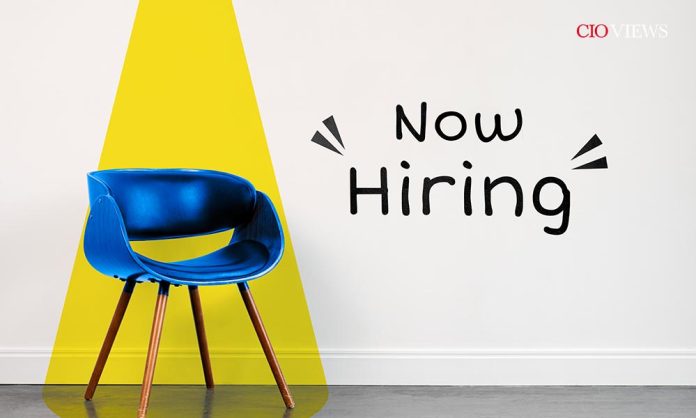Hiring the right person for the job is one of the most important decisions a manager can make. Despite their years of experience, many hiring managers continue to make the same mistakes. These mistakes not only result in poor hires, but they can also harm team dynamics, waste valuable time, and hurt a company’s bottom line. To to research, approximately 80% of hiring managers fall into these traps at least once in their careers. Understanding these common errors—and how to avoid them—is important for improving recruitment practices.
In this blog post, we will look at the most common mistakes made by hiring managers and offer advice on how to avoid them. Whether you’re an experienced manager or new to the hiring process, this guide will help you improve your recruitment strategy and make better hiring decisions.
Top 5 Common Hiring Mistakes Managers Make
Mistake 1: Focusing Too Much on Resumes
Many hiring managers place too much emphasis on a candidate’s resume. While resumes can provide helpful insights into a candidate’s experience, they don’t tell the full story. Focusing solely on a resume can lead to overlooking candidates who may not have traditional qualifications but possess the skills and potential to excel in the role.
Why This Is a Mistake:
Relying heavily on resumes can lead to hiring based on surface-level information, such as job titles or years of experience, instead of a candidate’s abilities or how well they align with the team’s needs. It also fails to account for other essential factors like work ethic, adaptability, and problem-solving skills.
How to Avoid This Mistake:
Instead of focusing only on resumes, conduct in-depth interviews, use skills assessments, and evaluate how candidates will contribute to your team’s success. Look beyond the resume to understand their motivations, cultural fit, and potential for growth.
Mistake 2: Rushing the Interview Process
In today’s fast-paced business world, hiring managers often feel pressured to fill positions quickly. This rush can lead to poor decision-making and hiring candidates who aren’t the best fit for the role. Taking shortcuts during the interview process, such as skipping important questions or glossing over red flags, can backfire.
Why This Is a Mistake:
When you rush through the interview process, you’re more likely to overlook critical information, leading to poor hiring decisions. Rushed interviews also fail to build rapport with candidates, making it harder to evaluate their true potential.
How to Avoid This Mistake:
Take your time with each candidate. Prepare thoughtful, relevant questions and allow enough time to dive into their experience, motivations, and behavior. Schedule interviews with enough time between them to allow for a thorough assessment.
Mistake 3: Ignoring Cultural Fit
Cultural fit is often overlooked in the hiring process. A candidate might have all the right skills but may not align with the company’s values or work style. This misalignment can lead to tension within teams, poor collaboration, and, ultimately, a shorter tenure for the employee.
Why This Is a Mistake:
Employees who don’t fit with your company’s culture may struggle to integrate into the team. This misfit can result in disengagement, high turnover rates, and lower overall performance.
How to Avoid This Mistake:
During interviews, assess not just skills but how well the candidate’s values align with your organization. Ask about their preferred work environment and how they’ve handled challenges or collaborated with teams in the past.
Mistake 4: Not Checking References Properly
Reference checks are an essential step in the hiring process. Yet many hiring managers either skip this step or conduct superficial reference checks. This is a missed opportunity to gather insights into a candidate’s work ethic, character, and previous performance.
Why This Is a Mistake:
Without thorough reference checks, hiring managers may overlook potential red flags, such as reliability issues or behavioral concerns. It’s essential to gather feedback from former colleagues or supervisors to get a complete picture of the candidate.
How to Avoid This Mistake:
Ask detailed, open-ended questions during reference checks. Don’t just confirm employment dates—ask about the candidate’s strengths, weaknesses, and how they handled specific situations in their previous roles.
Mistake 5: Not Using Structured Interview Techniques
Many hiring managers rely on unstructured, informal interviews, which can lead to biased decision-making. Unstructured interviews often focus too much on first impressions or gut feelings, which can result in inconsistent hiring practices.
Why This Is a Mistake:
Unstructured interviews can be subjective and fail to assess candidates fairly. Without a clear framework, you may overlook important qualities or hire someone who isn’t the best fit for the role.
How to Avoid This Mistake:
Implement structured interviews with a set of standardized questions that focus on the competencies required for the job. This approach allows for better comparisons between candidates and reduces bias.
Why These Mistakes Keep Happening
Despite knowing the risks, many hiring managers continue to make the same mistakes. Several factors contribute to this:
- Lack of Time and Resources:
Hiring managers often juggle multiple tasks and may not have the time or resources to dedicate to the hiring process. - Pressure to Fill Positions Quickly:
When teams are understaffed, there’s immense pressure to hire quickly, which can lead to rushed decisions and mistakes. - Bias and Unconscious Decisions:
Even experienced hiring managers can fall prey to unconscious bias, which can influence hiring decisions. Bias can take many forms—whether it’s based on a candidate’s appearance, education, or past experience.
How to Avoid These Hiring Mistakes
The key to avoiding these mistakes is to be intentional and proactive in your hiring process. Here’s how:
- Focus on Skills, Not Just Experience
Evaluate candidates based on their ability to perform in the role, not just their past job titles or years of experience. - Take Your Time
Don’t rush the interview process. Give yourself enough time to assess each candidate thoroughly and ensure they align with your needs. - Assess Cultural Fit
Evaluate how well a candidate will integrate with your company culture, as this is just as important as their technical skills. - Implement a Structured Hiring Process
Follow a structured process to ensure you’re evaluating all candidates consistently and fairly.
The Impact of These Mistakes on Your Organization
The cost of making poor hiring decisions is significant. Bad hires can:
- Drain Resources:
Hiring mistakes often lead to additional costs, such as training new employees or even paying severance packages for employees who don’t work out. - Hurt Team Morale:
Poor hires can disrupt team dynamics and lower morale, especially if the new employee struggles to integrate or perform effectively. - Create Legal Risks:
In some cases, hiring mistakes can result in legal issues, such as wrongful termination suits or compliance violations.





